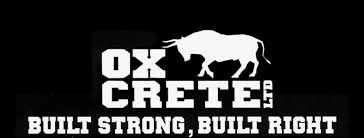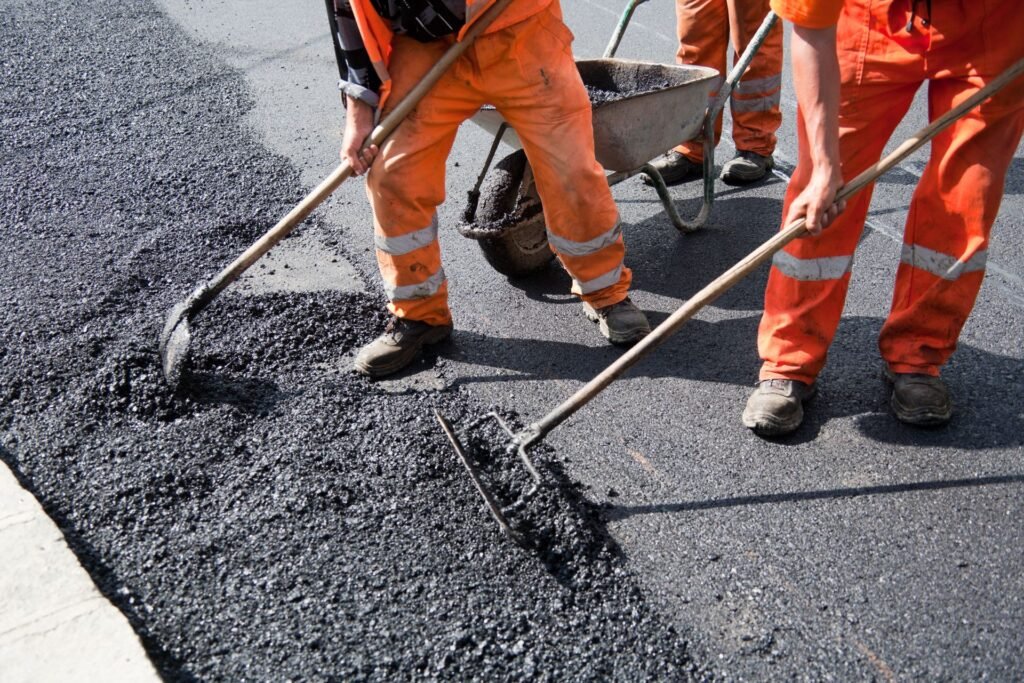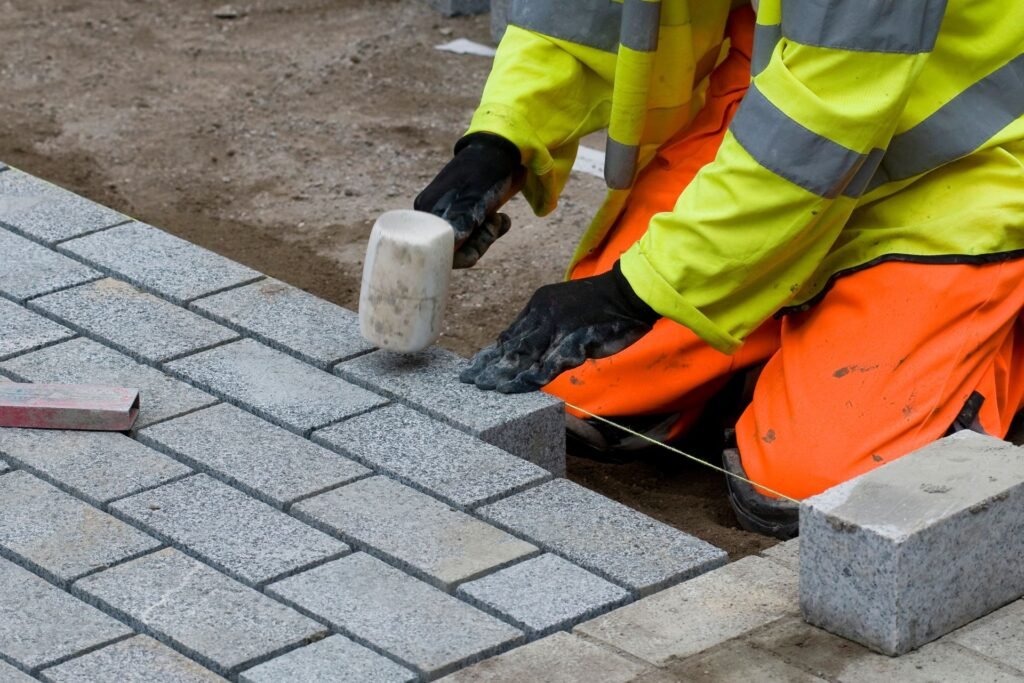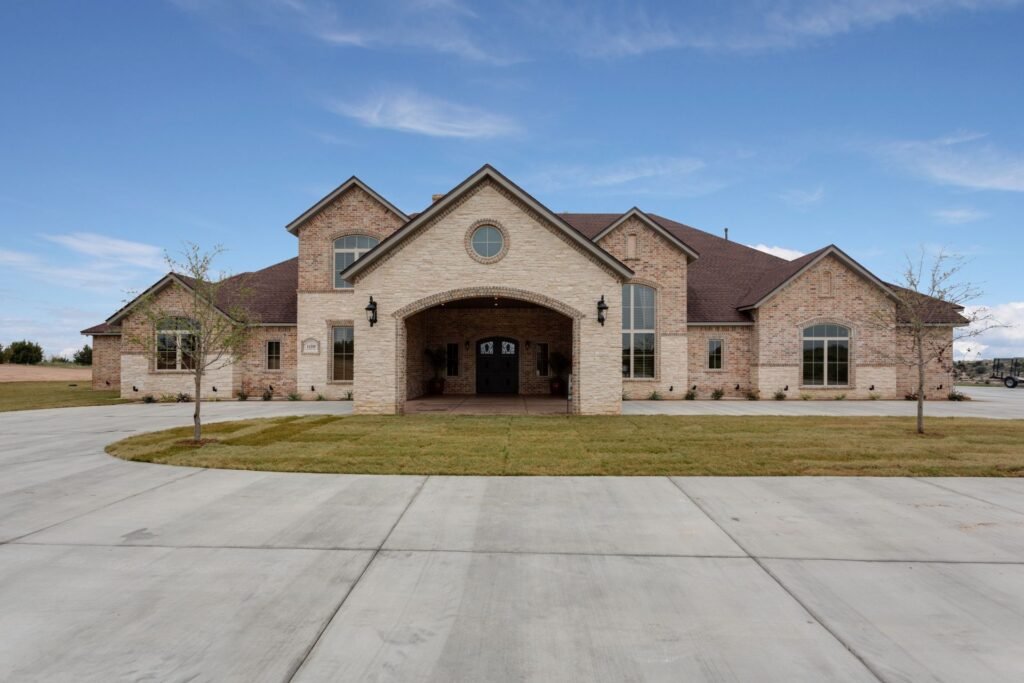Welcome to our comprehensive guide on understanding the asphalt cost per square meter in New Zealand. Whether you’re planning to pave a driveway, a walkway, or a larger commercial project, knowing the factors that influence asphalt pricing is crucial for effective budgeting and decision-making. In this guide, we will delve into what asphalt is, the benefits of using it, and the various elements that affect its cost. By the end, you’ll have a clear picture of what to expect when planning your next paving project, armed with the knowledge to make informed choices and potentially save on expenses. Let’s get started!
On average, the asphalt cost per square meter in New Zealand ranges from NZD $30 to $50, influenced by factors like materials, labor, location, and site preparation. For precise estimates, consider the specific needs of your project and consult with local contractors.
Table of Contents
What Is Asphalt?
Asphalt, also known as bitumen, is a sticky, black, and highly viscous liquid or semi-solid form of petroleum. It’s primarily composed of bitumen, a binding agent, mixed with mineral aggregates like sand, gravel, and crushed rock. This combination creates a strong, durable material that is widely used in construction, particularly for paving roads, driveways, and parking lots.
Definition of Asphalt
Asphalt is a composite material that combines bitumen with mineral aggregates. Bitumen acts as a binding agent, holding the aggregates together and providing the flexibility and strength needed for construction purposes. The mineral aggregates give asphalt its structural integrity and resistance to wear and tear. When heated, asphalt becomes pliable, allowing it to be spread and compacted to form a smooth, solid surface. Upon cooling, it hardens and provides a durable, long-lasting surface.
Uses of Asphalt
Asphalt is incredibly versatile and used in a variety of settings:
- Residential Projects: It is commonly used for paving driveways, walkways, and patios due to its durability and smooth finish.
- Commercial Projects: Businesses utilize asphalt for parking lots, loading docks, and other high-traffic areas where a robust surface is essential.
- Public Projects: Asphalt is extensively used in the construction of roads, highways, and airport runways, offering a resilient and cost-effective solution for public infrastructure.
In addition to these primary uses, asphalt is also employed in the construction of sports courts, bicycle paths, and playgrounds, showcasing its adaptability across different types of projects.
Benefits of Using Asphalt
Asphalt offers numerous advantages that make it a preferred choice for construction:
- Durability: Asphalt surfaces are known for their strength and longevity, capable of withstanding heavy traffic and extreme weather conditions without significant damage. This durability reduces the frequency and cost of repairs and maintenance.
- Cost-Effectiveness: Asphalt is relatively inexpensive compared to other paving materials. Its installation is quick and straightforward, minimizing labor costs and downtime. Furthermore, its long lifespan ensures that property owners get excellent value for their investment.
- Aesthetic Appeal: Asphalt provides a smooth, black finish that enhances the visual appeal of driveways, roads, and parking lots. Its sleek appearance can be easily maintained, and the material can be custom-colored or textured to meet specific design preferences.
- Recyclability: One of the most environmentally friendly aspects of asphalt is its recyclability. Old asphalt can be reclaimed and reused in new projects, reducing waste and conserving natural resources.
In summary, asphalt is a vital material in modern construction, valued for its durability, cost-effectiveness, and aesthetic appeal. Its versatility and benefits make it an ideal choice for a wide range of residential, commercial, and public projects. Whether paving a driveway or constructing a highway, asphalt provides a reliable, long-lasting solution that meets the needs of various applications.
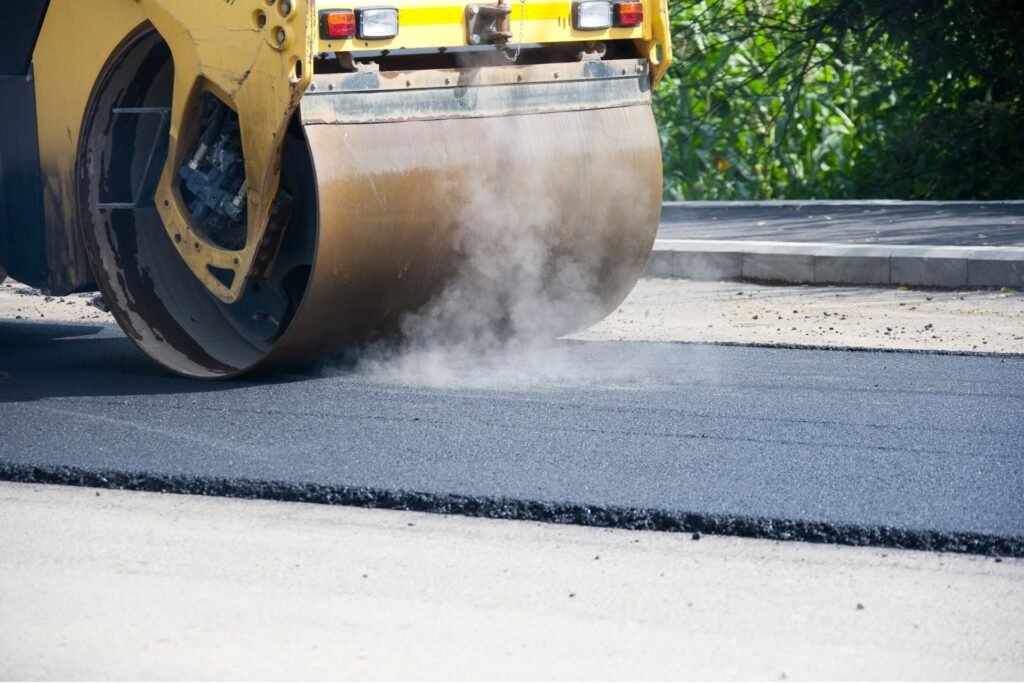
Factors Affecting Asphalt Costs In NZ
Asphalt is a popular material for paving driveways, roads, and parking lots due to its durability and relatively low cost. However, several factors can influence the overall cost of asphalt in New Zealand. Understanding these variables can help you better estimate your project expenses and make informed decisions.
Materials
The type of materials used in asphalt production can significantly impact the cost. High-quality aggregates and binders typically result in more durable asphalt but at a higher price. For instance, using polymer-modified bitumen can enhance the pavement’s flexibility and resistance to wear and tear but will increase the cost compared to standard bitumen. Additionally, the choice between recycled materials and virgin materials can affect pricing, with recycled asphalt often being more cost-effective.
Labor
labor costs are a major component of asphalt paving expenses. The complexity of the project, the skill level of the workers, and the duration of the job all play a role in determining labor costs. In New Zealand, the cost of labor can vary depending on the region and the availability of skilled workers. For example, urban areas with higher living costs may have higher labor rates compared to rural areas. Ensuring that you hire experienced professionals can result in a higher upfront cost but can save money in the long run through superior workmanship and fewer repairs.
Location
Geographical location within New Zealand can affect the cost of asphalt in several ways. Transportation costs for materials can vary greatly depending on how far the materials need to be shipped. Remote areas may incur higher costs due to the distance from suppliers. Additionally, local climate conditions can impact the type of asphalt mix required, with areas experiencing extreme temperatures or heavy rainfall potentially needing more robust (and expensive) materials to ensure longevity.
Thickness and Layers
The thickness of the asphalt layer and the number of layers applied are crucial factors in determining the overall cost. A thicker layer of asphalt generally offers greater durability and a longer lifespan but requires more material and labor, thus increasing the cost. Similarly, applying multiple layers, such as a base layer and a surface layer, can enhance the pavement’s strength and resilience but will also add to the expense. The intended use of the paved area, such as a residential driveway versus a commercial parking lot, will dictate the necessary thickness and layering.
Preparation Work
Proper site preparation is essential for a quality asphalt installation and can significantly affect costs. This includes grading, which ensures proper drainage and a level surface, and excavation, which may be necessary to remove existing pavement or unsuitable soil. The extent of preparation work required depends on the site’s current condition. Sites with poor soil quality or significant existing structures will require more intensive preparation, increasing the cost.
Additional Features
Adding extra features to your asphalt pavement can further influence the overall cost. Decorative finishes, such as stamped or colored asphalt, can enhance the visual appeal of the surface but will come at a premium. Special coatings, like sealants, can protect the asphalt from UV damage, oil spills, and water penetration, extending its lifespan but also adding to the initial expense. Incorporating these features should be carefully considered based on the budget and desired outcome of the project.
In conclusion, several factors can impact the cost of asphalt in New Zealand, from the choice of materials and labor costs to location-specific considerations, thickness and layering requirements, site preparation needs, and additional features. By understanding these variables, you can better plan and budget for your asphalt paving project, ensuring a durable and cost-effective solution.
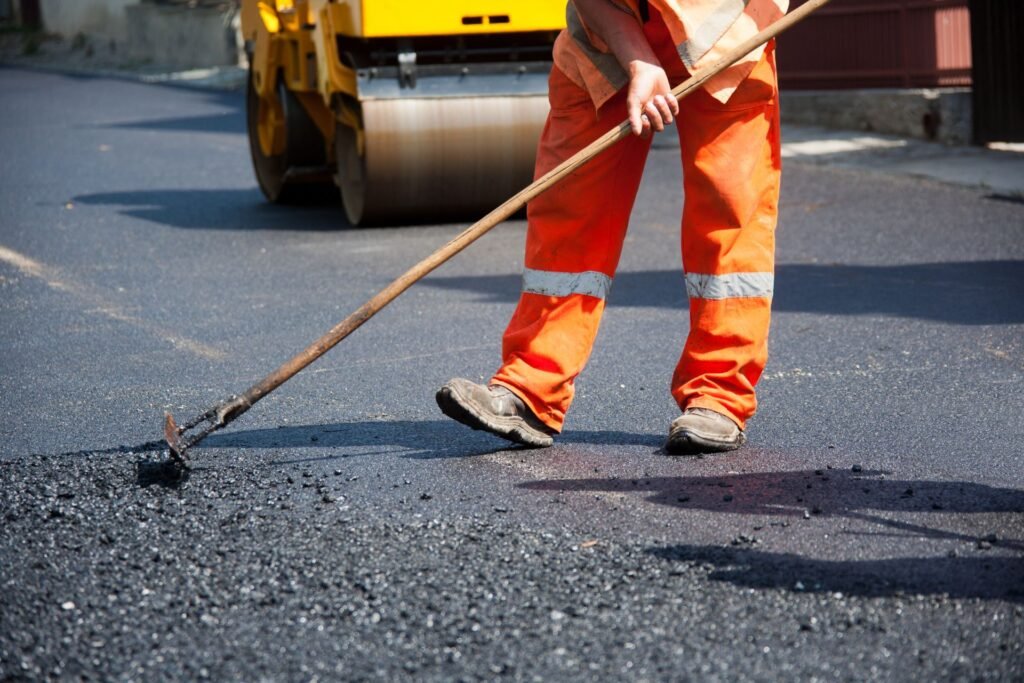
Average Asphalt Cost Per Square Meter In NZ
Current Market Rates
When considering the cost of asphalt per square meter in New Zealand, it’s important to account for a few variables such as location, the scope of the project, and the quality of materials used. As of 2024, the price of asphalt in New Zealand typically ranges between NZD $30 to $50 per square meter. This range can fluctuate based on the aforementioned factors, as well as current market conditions and the availability of materials. For larger projects, economies of scale can sometimes bring the cost down, while smaller, more detailed jobs might see higher per-square-meter costs due to the intricacies involved.
Comparison with Other Materials
Understanding how asphalt stacks up against other paving materials can be crucial for making an informed decision. Here’s a brief comparison:
- Concrete: Concrete is generally more expensive than asphalt, with costs ranging from NZD $70 to $100 per square meter. However, it offers greater durability and lower maintenance costs over its lifetime. Concrete is often preferred for high-traffic areas due to its strength and longevity.
- Gravel: Gravel is a much cheaper alternative, typically costing around NZD $10 to $20 per square meter. While it’s cost-effective, it doesn’t offer the same smooth finish as asphalt or concrete and can require more frequent maintenance to keep it in good condition. Gravel is often used for less critical applications like rural driveways or temporary parking areas.
Examples
To give a clearer picture, let’s look at a few real-life examples:
1. Residential Driveway in Auckland: A homeowner in Auckland recently had a 50-square-meter asphalt driveway installed. The total cost came to NZD $2,000, averaging NZD $40 per square meter. This included the base preparation, the asphalt itself, and the labor costs. The homeowner chose asphalt over concrete due to the quicker installation time and the lower upfront cost.
2. Commercial Parking Lot in Wellington: A small business in Wellington needed to pave a 200-square-meter parking lot. They opted for asphalt, which cost them approximately NZD $9,000, working out to NZD $45 per square meter. The decision was based on asphalt’s ability to handle heavy vehicle traffic and its relatively quick installation process compared to concrete.
3. Rural Driveway in Canterbury: In Canterbury, a rural property owner chose to pave their 100-square-meter driveway with gravel, costing them NZD $1,500 in total. While significantly cheaper than asphalt or concrete, the owner was prepared for the higher maintenance needs and the less polished appearance.
These examples illustrate the diversity in project costs depending on the type of paving material chosen, the location, and the specific requirements of the project. Asphalt remains a popular choice for its balance between cost and functionality, especially in urban settings where a smooth, durable surface is desired.
By understanding the average costs and comparing them with alternative materials, you can make an informed decision that aligns with your budget and project needs. Whether for a residential driveway, a commercial parking lot, or a rural pathway, considering these factors will help ensure a successful and cost-effective paving project.
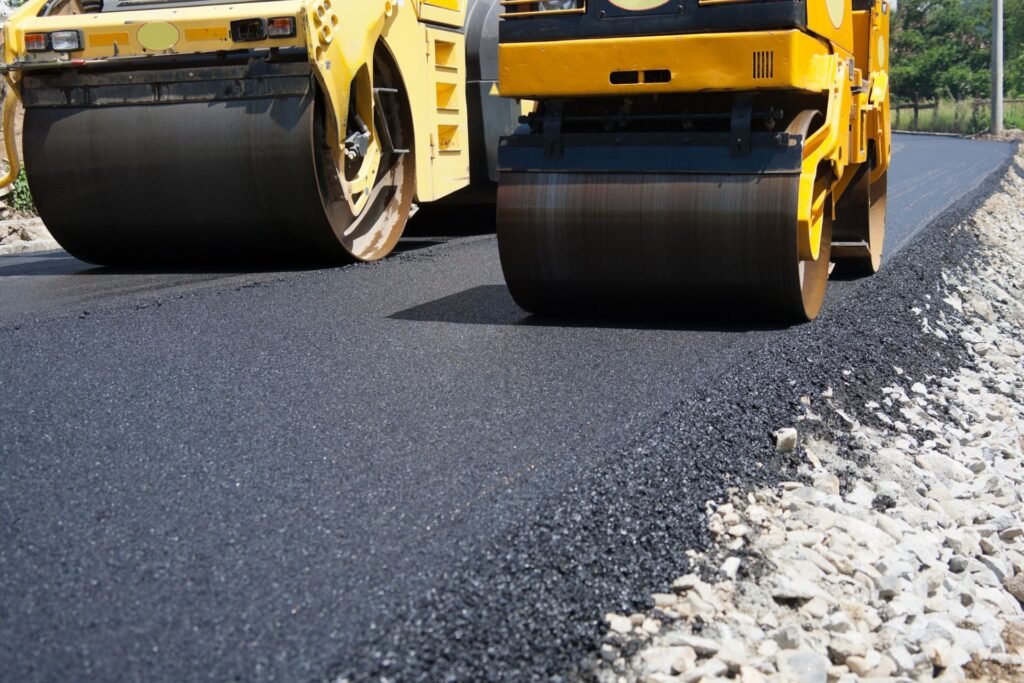
Detailed Cost Breakdown
When planning an asphalt paving project, understanding the detailed cost breakdown is crucial for budgeting and decision-making. Let’s dive into the various components that make up the total cost, ensuring you have a clear picture of where your money will be spent.
Materials Cost
The cost of materials is a significant part of any asphalt paving project. Asphalt is typically priced per tonne, and the price can vary depending on the type and quality of the material.
1. Hot Mix Asphalt (HMA): This is the most common type of asphalt used for driveways and roads. On average, it costs between $100 to $200 per tonne, depending on the quality and the supplier.
2. Warm Mix Asphalt (WMA): Slightly more expensive than HMA, WMA costs range from $120 to $250 per tonne. Its advantage lies in being more environmentally friendly and requiring less energy to produce.
3. Porous Asphalt: This type allows water to drain through the surface, reducing runoff and improving groundwater recharge. It costs between $150 and $300 per tonne.
For a 100-square-meter driveway, assuming a thickness of 50mm (0.05 meters), you would need approximately 10 tonnes of asphalt (assuming a density of 2,400 kg/m³). The material cost would thus range from $1,000 to $3,000, depending on the type of asphalt chosen.
Labor Cost
labor costs are another major component. These costs can vary based on location, the complexity of the project, and the experience of the crew.
- Basic labor: For straightforward jobs like driveway paving, labor costs typically range from $50 to $80 per hour per worker. A team of 4 workers might take about 2 days to complete a 100-square-meter driveway, resulting in total labor costs of around $3,200 to $5,120.
- Specialized labor: For more complex projects requiring specialized skills, such as custom designs or intricate drainage solutions, labor costs can increase to $80 to $100 per hour. This could push the total labor costs up to $5,120 to $6,400.
Equipment Cost
Equipment costs can include rental fees for machinery and the cost of operating and maintaining these machines.
- Paving Machine Rental: A paving machine can cost between $500 and $1,000 per day to rent. For a 2-day project, this would total $1,000 to $2,000.
- Roller Rental: Rollers, essential for compacting the asphalt, can cost between $200 and $400 per day. For 2 days, this adds up to $400 to $800.
- Additional Equipment: Other equipment such as dump trucks, hand tools, and safety gear can add another $500 to $1,000 to the total cost.
Overall, equipment costs for a 100-square-meter driveway could range from $1,900 to $3,800.
Total Cost
To give you a comprehensive example calculation, let’s consider a hypothetical project for a 100-square-meter driveway:
1. Materials Cost: Using Hot Mix Asphalt, the cost would be approximately $1,500 (assuming $150 per tonne for 10 tonnes).
2. labor Cost: For basic labor, the cost would be around $4,160 (average of $50 to $80 per hour for 4 workers over 2 days).
3. Equipment Cost: Combining paving machine, roller rental, and additional equipment, the cost would be approximately $2,450.
Total Cost: Adding up these components, the total cost for the project would be around $8,110.
This breakdown helps illustrate the major cost factors involved in an asphalt paving project. By understanding these elements, you can make informed decisions and better manage your project budget.
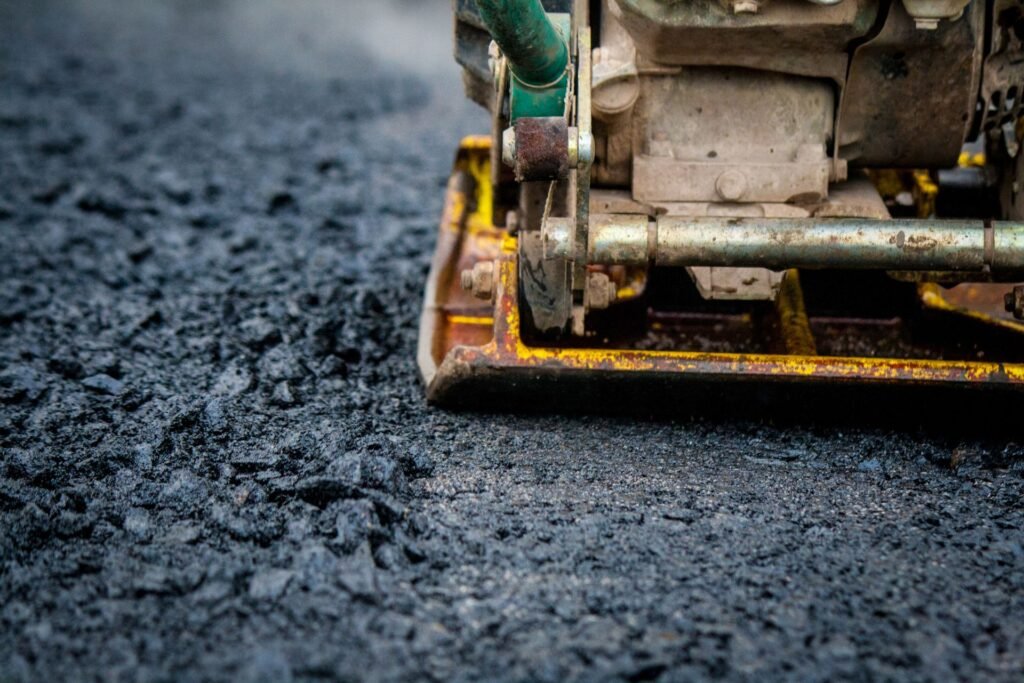
Ways To Save On Asphalt Costs
When it comes to managing the costs of asphalt projects, there are several strategies that can help you save money without compromising on quality. Whether you’re paving a driveway or a large commercial space, these tips can make a significant difference in your budget.
Bulk Purchasing
Buying materials in bulk is a tried-and-true method for reducing costs in many areas, and asphalt is no exception. When you purchase asphalt in larger quantities, suppliers often offer discounts that can lead to substantial savings. This approach is particularly beneficial for larger projects where the volume of asphalt required is significant. Not only does bulk purchasing lower the price per unit, but it also reduces the frequency of deliveries, saving on transportation costs. For smaller projects, consider partnering with neighbors or other local projects to buy in bulk together and share the savings.
Off-Season Work
Timing your asphalt project can also influence the overall cost. Asphalt paving is highly seasonal, with peak demand occurring during the warmer months. By scheduling your project during the off-peak season, typically in late fall or early spring, you can take advantage of lower rates. Contractors are often more willing to negotiate prices during these times to keep their crews busy. Additionally, the cooler weather during off-peak seasons can sometimes result in better curing and setting conditions for the asphalt, potentially enhancing the quality of the finished product.
DIY Preparation
One of the most effective ways to save money on your asphalt project is to handle some of the preparatory work yourself. Tasks such as clearing the site, removing old pavement, and leveling the ground can be labor-intensive but don’t necessarily require specialized skills or equipment. By doing these steps yourself, you reduce the amount of labor the contractor needs to perform, thereby lowering your overall costs. However, it’s important to ensure that the preparation work is done correctly, as improper preparation can lead to issues with the final asphalt surface.
Maintenance Tips
Maintaining your asphalt properly can extend its lifespan and reduce the need for costly repairs or replacements. Regular maintenance includes sealing cracks and applying a seal coat every few years to protect the surface from water damage, UV rays, and chemicals. Promptly addressing any damage, such as potholes or cracks, prevents them from worsening and becoming more expensive to repair. Additionally, keeping the surface clean from debris and vegetation helps maintain its integrity and appearance. Investing time and a small amount of money in regular maintenance can save you significant amounts in the long run by avoiding major repairs or full resurfacing.
By implementing these strategies, you can effectively manage and reduce the costs associated with asphalt projects. Whether through bulk purchasing, smart timing, DIY efforts, or diligent maintenance, there are multiple ways to achieve savings and ensure a durable, high-quality asphalt surface.
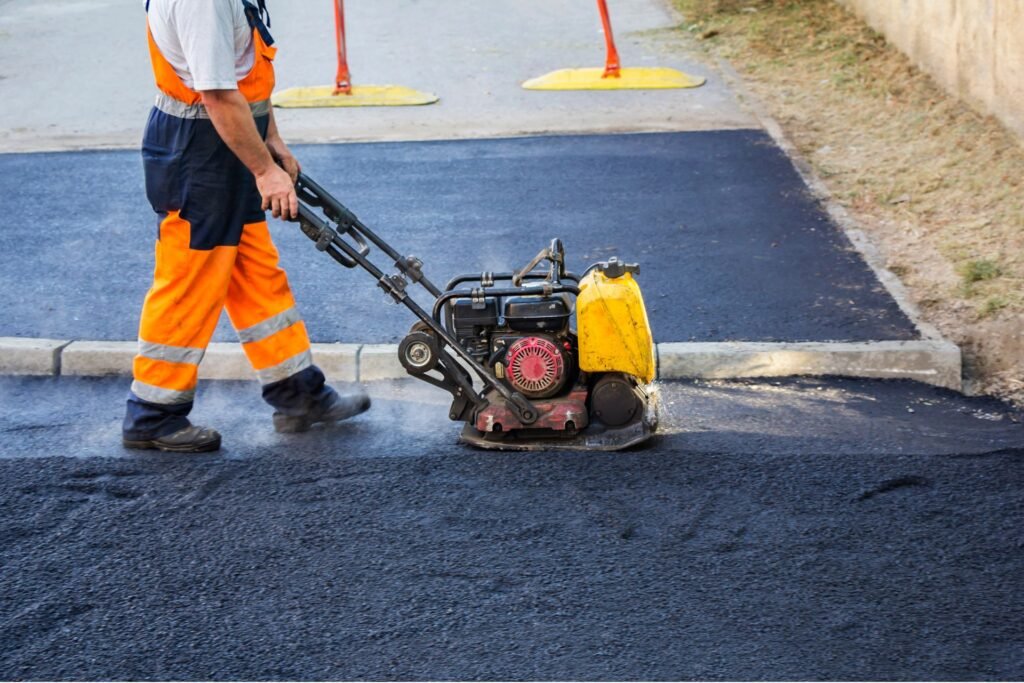
Choosing A Contractor In NZ
When it comes to selecting a contractor in New Zealand, making an informed decision is crucial to ensure a successful project. Here’s a comprehensive guide to help you through the process:
Research
First and foremost, thorough research is essential. Start by asking for recommendations from friends, family, and colleagues who have had similar work done. Personal experiences can be invaluable in identifying trustworthy contractors. Additionally, utilize online resources such as trade associations, forums, and review sites. Websites like Builderscrack and Trade Me Services offer a plethora of options and reviews to help narrow down your choices. Don’t forget to visit the contractors’ websites to get a sense of their professionalism and scope of work.
Quotes
Obtaining multiple quotes is a critical step in the selection process. Aim to get at least three quotes from different contractors. This not only gives you a sense of the market rate but also helps you understand the scope of work each contractor is proposing. Be wary of quotes that are significantly lower than others, as they may indicate lower-quality materials or a lack of necessary inclusions. On the other hand, extremely high quotes don’t always guarantee superior quality. By comparing several quotes, you can find a balance between cost and quality that suits your budget and project needs.
Credentials
Checking a contractor’s credentials is vital to ensure they are qualified and capable of completing your project to a high standard. In New Zealand, look for contractors who are Licensed Building Practitioners (LBPs). This certification ensures that they have met specific standards set by the New Zealand government. Additionally, memberships in professional bodies like the Master Builders Association or the Certified Builders Association of New Zealand can indicate a higher level of professionalism and commitment to ongoing education and quality. Don’t hesitate to ask for proof of their credentials and verify them through official channels.
Reviews and References
Finally, checking reviews and references can provide deeper insights into a contractor’s reliability and quality of work. Look for reviews on independent websites to get an unbiased perspective. Pay attention to recurring themes in the reviews, such as punctuality, quality of workmanship, and communication skills. Asking the contractor for references from previous clients is also a smart move. Speak directly with these clients about their experiences, asking specific questions about the project’s timeline, budget adherence, and any issues that arose. This firsthand feedback can be invaluable in making your final decision.
By following these steps, you can select a reputable contractor who meets your needs and expectations, ensuring your project is completed smoothly and to a high standard.
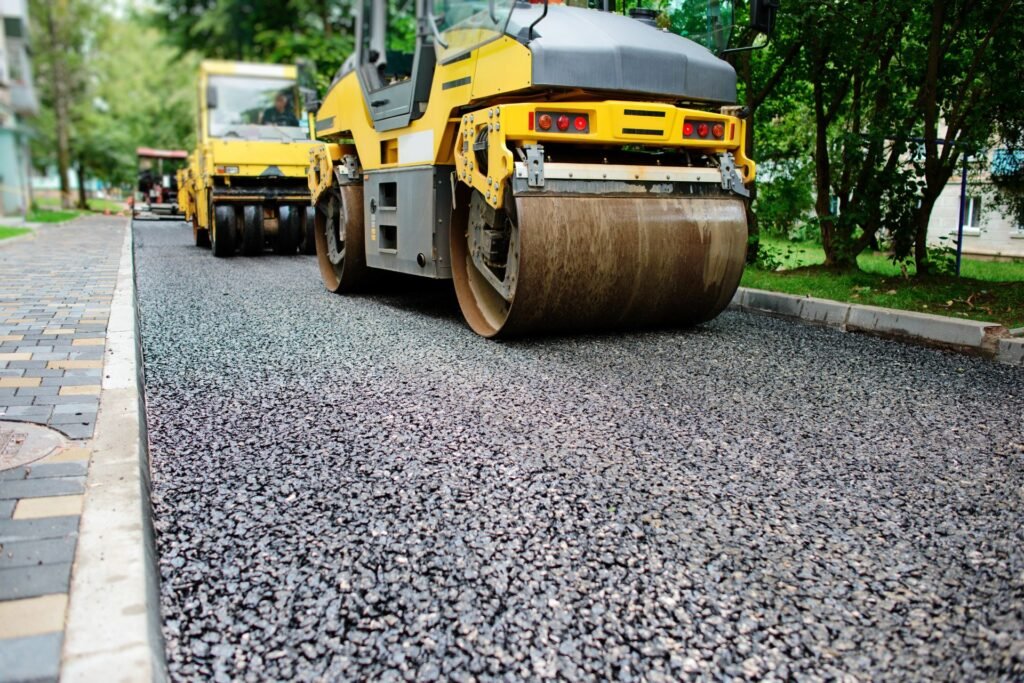
Common Mistakes To Avoid
When undertaking any project, especially one involving construction or landscaping, it’s crucial to avoid common mistakes that can lead to significant issues down the line. Here are some of the most frequent pitfalls and why you should steer clear of them:
Overlooking Site Preparation
One of the most significant errors you can make is neglecting proper site preparation. Site preparation lays the foundation for the entire project. It includes clearing the area of debris, leveling the ground, and ensuring proper drainage. Skipping these steps can lead to uneven surfaces, water pooling, and instability. For instance, if you’re installing a deck or a retaining wall, inadequate site preparation can result in structural issues that may require extensive repairs later. Always take the time to prepare your site meticulously; this not only ensures the longevity of your project but also saves you from headaches and additional costs in the future.
Choosing Based on Price Alone
While it’s tempting to opt for the cheapest option to save money, this approach can often backfire. The lowest price may come with hidden costs such as poor quality materials, lack of expertise, or insufficient warranty. For example, selecting the cheapest decking material might save you money initially, but it could lead to frequent maintenance, quicker deterioration, and ultimately higher replacement costs. Instead, consider the value you’re getting for your money. Assess the quality of materials, the reputation of the provider, and any long-term benefits. Investing a bit more upfront can save you significantly over the lifespan of your project.
Ignoring Maintenance
Another common mistake is neglecting regular maintenance. Every construction or landscaping project requires some level of upkeep to ensure it remains in good condition. Ignoring maintenance can lead to minor issues becoming major problems, resulting in costly repairs. For example, a well-maintained deck can last for decades, while one that is neglected may start showing signs of wear and tear within a few years. Create a maintenance schedule that includes regular inspections, cleaning, and minor repairs. This proactive approach will help you catch and address issues early, extending the life of your investment and ensuring it looks and functions as intended.
By being aware of these common mistakes and taking steps to avoid them, you can ensure the success and longevity of your project. Proper site preparation, making informed decisions beyond just the initial cost, and committing to regular maintenance are key to achieving the best results and avoiding unnecessary expenses.
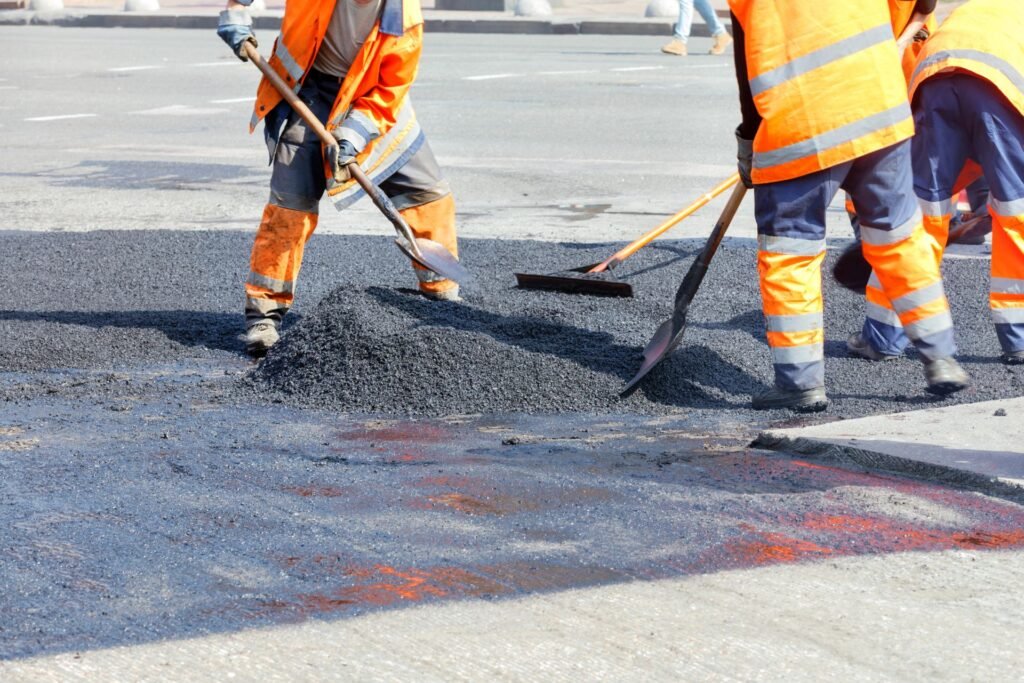
Future Trends In Asphalt Paving
Sustainable Materials
In recent years, there has been a significant shift towards using eco-friendly materials in asphalt production. This trend is driven by the increasing awareness of environmental issues and the need to reduce the carbon footprint of construction activities. Asphalt companies in New Zealand are now incorporating recycled materials such as reclaimed asphalt pavement (RAP) and recycled asphalt shingles (RAS) into their mixes. These materials not only help in reducing waste but also cut down on the consumption of natural resources. Additionally, the use of warm-mix asphalt (WMA) is gaining popularity. WMA allows asphalt to be produced and laid at lower temperatures, which reduces energy consumption and emissions during the production process. This move towards sustainable materials not only benefits the environment but also offers cost savings and performance improvements.
Innovative Techniques
The asphalt paving industry in New Zealand is embracing several innovative techniques to enhance the quality and efficiency of road construction. One of the most notable advancements is the adoption of permeable asphalt. This technology allows water to pass through the pavement, reducing runoff and the risk of flooding. It is particularly useful in urban areas where stormwater management is a critical concern. Another innovation is the use of smart asphalt, which incorporates sensors to monitor the condition of the pavement. These sensors can detect stress and strain, providing real-time data that helps in proactive maintenance and extending the lifespan of the roads. Moreover, the implementation of 3D paving control systems is revolutionizing the accuracy and speed of asphalt laying, ensuring smoother and more durable surfaces.
Market Outlook
The asphalt market in New Zealand is poised for significant growth in the coming years. Several factors are contributing to this positive outlook. First, the government’s commitment to infrastructure development, as seen in various road and highway expansion projects, is driving demand for asphalt. Additionally, the increasing preference for sustainable and high-performance paving materials is pushing the market towards innovation and quality improvement. The focus on reducing maintenance costs and extending the lifespan of roads is also encouraging the adoption of advanced asphalt technologies. As urbanization continues to rise, the need for efficient and resilient road networks will further boost the market. Industry experts predict that the asphalt sector in New Zealand will see a steady increase in investment, leading to advancements in materials, techniques, and overall market expansion.
In conclusion, the future of asphalt paving in New Zealand looks promising, with a strong emphasis on sustainability, innovation, and growth. By leveraging eco-friendly materials and cutting-edge technologies, the industry is set to meet the evolving demands of modern infrastructure while contributing to environmental preservation and economic development.
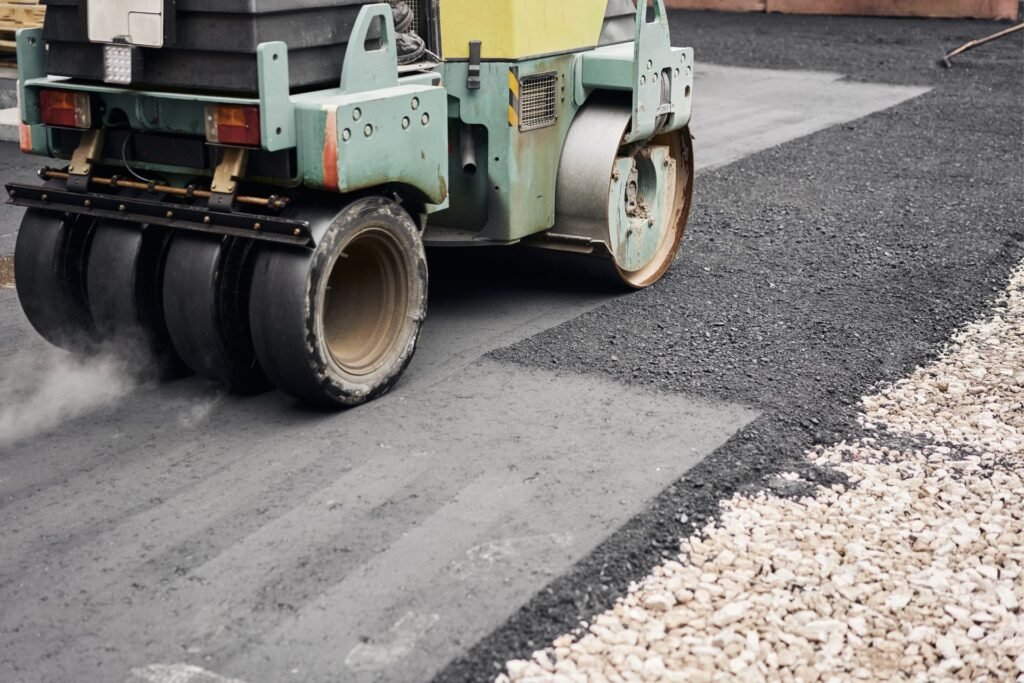
FAQs: About Asphalt Cost Per Square Metre NZ
What is the average cost of asphalt per square meter in NZ?
On average, the cost of asphalt per square meter in New Zealand ranges from NZD $30 to $50. This price can vary based on factors such as materials, labor, and site preparation.
How does the quality of asphalt affect its cost?
Higher quality asphalt typically costs more due to the superior materials and longer lifespan. Investing in quality asphalt can save money in the long run by reducing the need for frequent repairs and maintenance.
What are the main factors that influence asphalt costs in NZ?
Key factors include the type of materials used, labor costs, geographical location, the thickness and number of asphalt layers, site preparation requirements, and any additional features like decorative finishes.
Can I reduce asphalt costs by preparing the site myself?
Yes, performing some of the preparatory work yourself, such as grading and excavation, can reduce overall costs. However, it’s important to ensure the work is done to a professional standard to avoid issues later.
How long does asphalt typically last?
With proper installation and maintenance, asphalt surfaces can last 15 to 20 years or more. The lifespan can be influenced by factors such as climate, usage, and the quality of the installation.
What are the benefits of choosing asphalt over other paving materials?
Asphalt is durable, cost-effective, and aesthetically appealing. It provides a smooth surface for vehicles, requires less maintenance compared to other materials, and is relatively quick to install.
What is involved in maintaining an asphalt surface?
Regular maintenance includes cleaning, sealing cracks, and applying a seal coat every few years to protect the surface from weather and wear. Proper drainage and prompt repairs of any damage are also crucial.
How can I find a reliable asphalt contractor in NZ?
Research potential contractors by reading reviews, checking their credentials and certifications, and asking for quotes from multiple companies. Seek recommendations from friends or family and request references from previous clients.
Is it cheaper to install asphalt during certain times of the year?
Yes, scheduling your asphalt project during the off-peak season, typically in late autumn or early spring, can result in lower costs due to reduced demand and better contractor availability.
What are the latest trends in asphalt paving in NZ?
Current trends include the use of sustainable materials, such as recycled asphalt, and innovative paving techniques that improve durability and efficiency. The market is also seeing increased interest in eco-friendly and aesthetically pleasing finishes.
Conclusion
In conclusion, understanding the various factors that influence asphalt costs is essential for effective project planning. Recapping the key points, we discussed how materials, labor, site preparation, and location can significantly impact the overall expense of an asphalt project. Grasping these elements helps ensure that you can budget accurately and avoid unexpected costs. By taking the time to thoroughly comprehend these aspects, you can make informed decisions that benefit your project in the long run. Finally, don’t hesitate to reach out to local contractors for personalized quotes or further consultation to ensure your project’s success. Contacting professionals can provide you with tailored advice and accurate estimates, ensuring your asphalt project is completed efficiently and within budget.
About the Author:
Mike Veail is a recognized digital marketing expert with over 6 years of experience in helping tradespeople and small businesses thrive online. A former quantity surveyor, Mike combines deep industry knowledge with hands-on expertise in SEO and Google Ads. His marketing strategies are tailored to the specific needs of the trades sector, helping businesses increase visibility and generate more leads through proven, ethical methods.
Mike has successfully partnered with numerous companies, establishing a track record of delivering measurable results. His work has been featured across various platforms that showcase his expertise in lead generation and online marketing for the trades sector.
Learn more about Mike's experience and services at https://theleadguy.online or follow him on social media:
